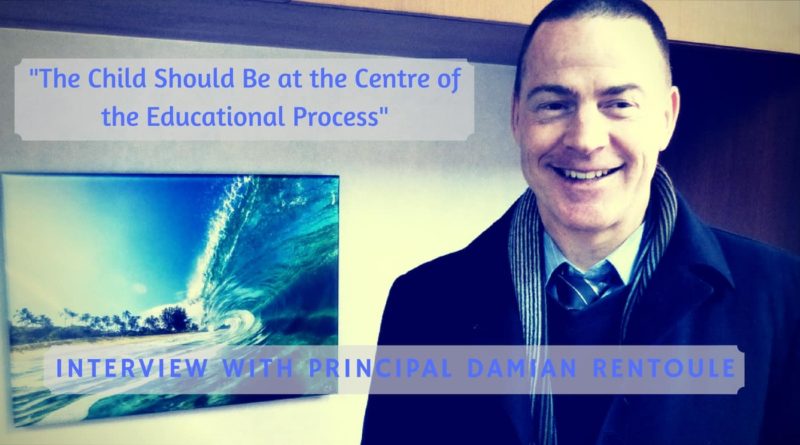HIS Principal Damian Rentoule
In this day and age, it is important for people to find somewhere they feel like they are welcome. I felt this is an essential part of the HIS philosophy when I had the chance to talk with Damian Rentoule, the principal of Hiroshima International School. The following includes the key points of our discussion and some of my comments from the school tour.
What’s your general philosophy for running HIS?
DR: The general philosophy that guides us here is that the child should be at the center of the educational process. This had some deep implications for the approach to teaching and learning that we must take, particularly with regard to the treatment of difference. As each child will bring different experiences to the classroom, we need to incorporate their ideas into the learning. The fact that students think differently is, in this sense, strength rather than a challenge. It’s something to foster rather than something to correct. We want students to express themselves in meaningful ways and make connections between themselves and the wider world, which is what we mean by ‘international’ education.
What are your hopes for the next few years?
DR: Over the next few years we would like to continue to refine our inquiry-based, conceptually driven IB programs and take a leadership role in the development of international education in the region. In regard to students, we receive inquiries from families too far to travel to our school on a daily basis, so we will be commencing a boarding component in 2018 to allow students outside of Hiroshima in the Chugoku region access our program. This is an exciting shift will also open up our doors to international students.
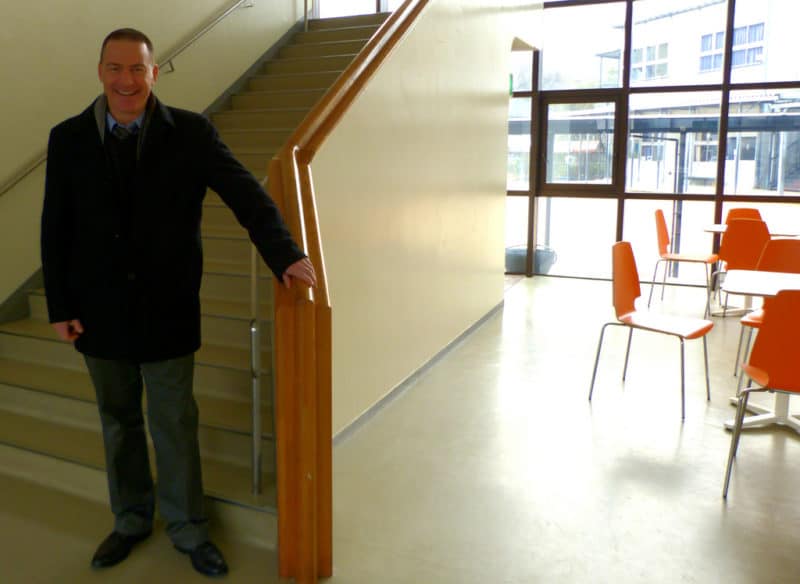
What are some particular challenges to running HIS?
DR: One of our challenges is, of course, supporting the language needs of students on their way to bilingualism, particularly the development of specific academic language and we are working on our processes to support this further as it is not enough to just be able to communicate in multiple languages, students need to have specific academic language skills in multiple languages. It will always be easier to just learn in just one language, however the ultimate benefits of bilingualism are well worth the additional work along the way.
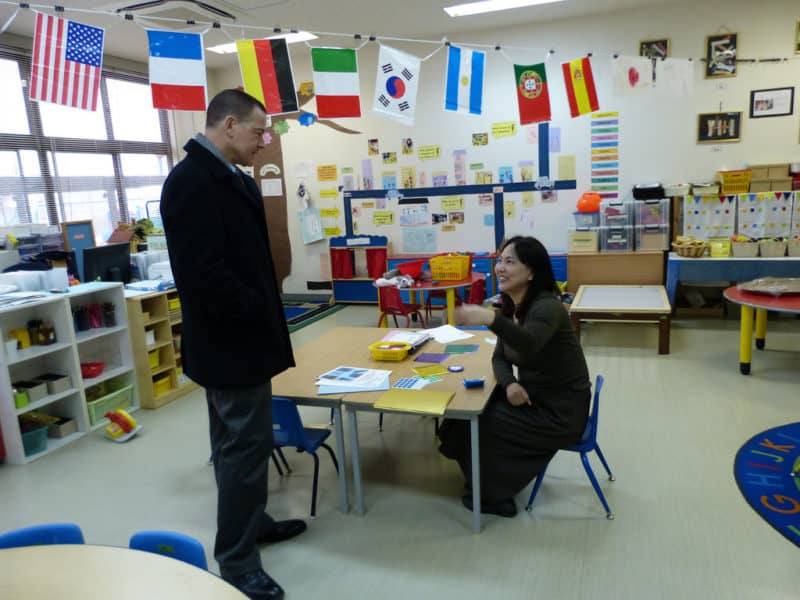
My comments :
Taking a tour of the school with Damian, I have to say that I really like the design and feel of the school- everyone is friendly, there is a lot of natural light and the student’s artwork and projects decorate the halls. Although the school is not new, it looks to be in good condition and there is a good-sized yard area outside and a gym for sports and special events. There are annual cultural events held at the school each year organized by the active PTA and students. Favorites are always Halloween, Bonfire night, school plays or musicals, peace-related activities and talent contests.
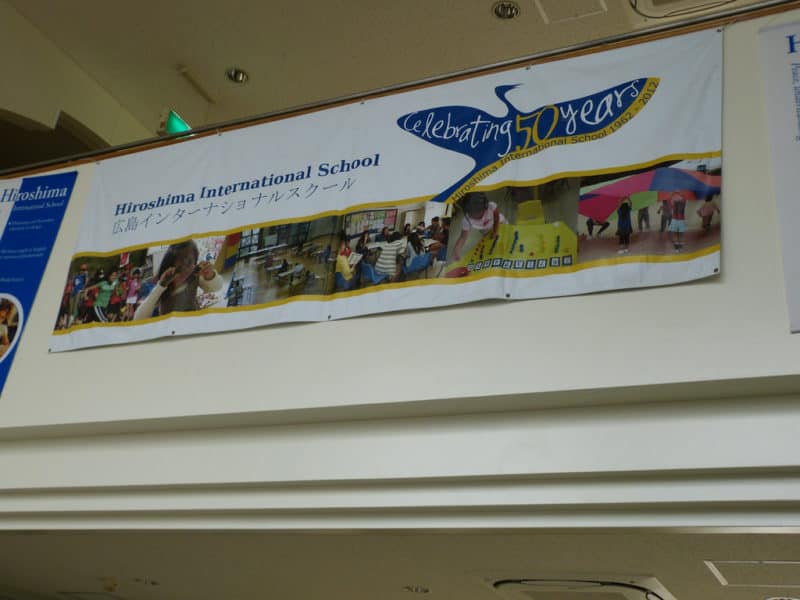
What do you see as the greatest benefits of HIS education?
DR: As a relatively small school, all of our students know each other, including the students in different grades which gives us a very supportive family feel. With relatively small classes, our teachers are able to get to know each student as an individual learner. With regard to content, students making connections between themselves and the wider world is becoming even more important for students in Japan, as the potential for connection with other people and their ideas increases with technological advances. However, it is not necessarily the depth of connection that is increasing. The school experience at HIS is designed to promote independent, critical thought that will allow students to make up their own minds.
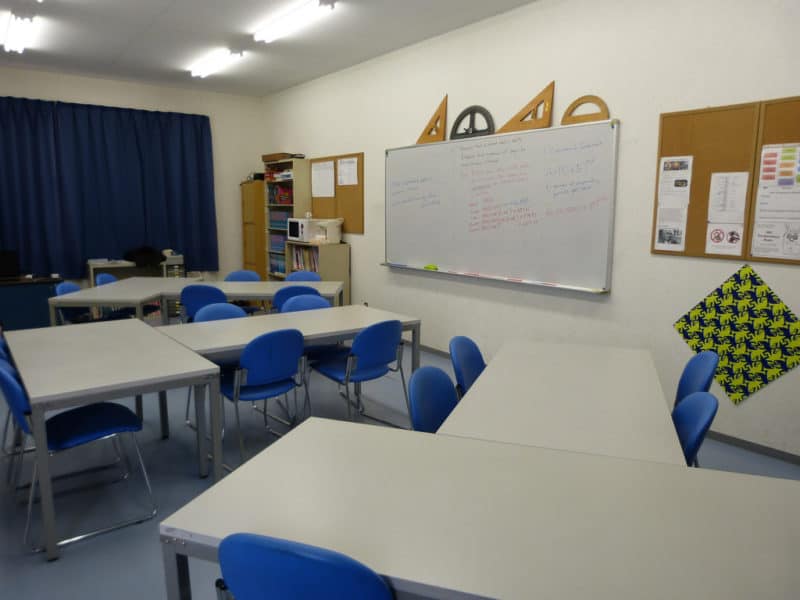
My comments :
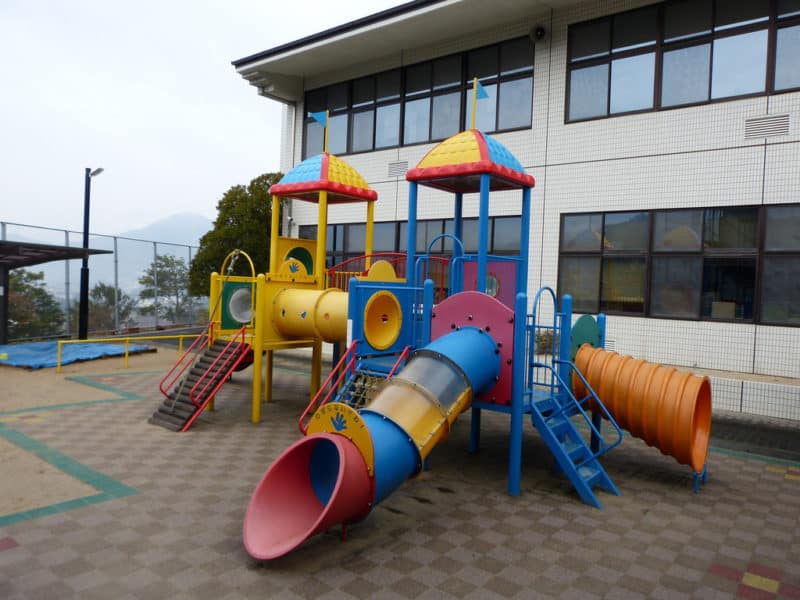
How do you feel about living and working in Hiroshima?
DR: I have found Hiroshima to be a very easy city to settle into. It is a perfect size, having lots to do without the huge crowds that made life difficult in Tokyo. Being surrounds by such a lovely natural environment makes everyday life so much more pleasant. My wife and I have become Carp fans, and often watch the games, which surprised me, as neither of us has ever had any interest in professional sports. Hiroshima promotes a healthy outdoor lifestyle, I have found. I live in Hakushima and commute to HIS by bicycle, along with many hundreds of cyclists I see as I ride up the river, so the ease of travel on a bicycle is one of the great things about Hiroshima in my mind. It is wonderful not to have to rely on a car.
Damian adds:
With regard to my blog (to which I need to post more regularly), the one on June 22, ‘A child’s world’ is very relevant to the first point above. It is probably the most important way of enabling us to see the students as individuals – that idea of seeing an authentic world of the child rather than seeing it as a limited version of an adult world. The Reggio Emilia philosophy relates to early childhood, but the same message is as true for high school students. It’s a challenge for teachers, and for any adult.
You may also be interested to read about AICJ and an interview with Principal David Cooper. AICJ is another private international school in Hiroshima which offers the IB program.


